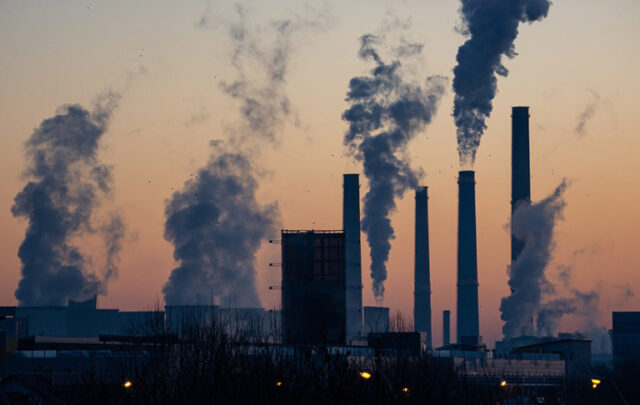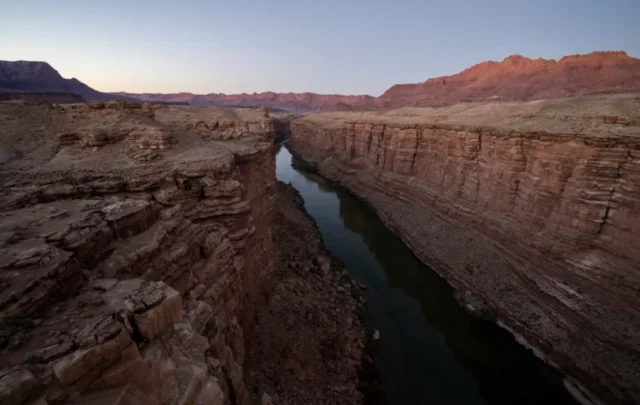
One becomes nervous when a consensus begins to form around a Big New Idea — it starts to sound like group think. So what are we to make of the cottage industry developing around the notion that the U.S. not only isn’t facing an impending oil shortage — it is on the cusp of being nearly energy independent, short of a margin of barrels that will be imported from friendly Canada and Mexico?
As discussed over the weekend, Clifford Krauss of the New York Times and oil consultant Daniel Yergin, writing at the Washington Post, have published long pieces marveling at the emerging picture of a hydrocarbon bonanza in the United States and right on its borders. Today, the Financial Times’ Ed Crooks adds a third lengthy analysis to this growing train, suggesting that by 2035, the U.S. and Canada together could be producing a whopping 22 million barrels of oil a day — more than twice the current volume – and thus requiring almost no other crude from anywhere. Add up oil shale from North Dakota (pictured above, North Dakotan oil camp), Texas and elsewhere; Gulf of Mexico crude; natural gas liquids from shale gas; plus Canadian oil sands, and you get the picture. In combination, the analyses leave one with whiplash.
How surprising is this shift? In his Washington Post piece published Sunday, Yergin describes the emergence of a “new world oil map … centered not on the Middle East but on the Western Hemisphere.” But just six weeks ago, Yergin published The Quest — his comprehensive, 754-page fresh dive into global energy — which not only doesn’t mention such a shift, but describes a continued Middle East-centered oil universe in which the notion of energy security is a mere “mantra.” Yergin already needs to go to an updated second edition.
What could undermine the prognoses is if the result is relatively low oil prices, and a resumption of America’s gluttonous gasoline appetite, which would erode millions of barrels of oil a day. Still, Crooks finds solace in the volumes further afield, but still in the Western Hemisphere: “Even if the most optimistic hopes are not fulfilled,” he writes, “one can imagine a future in which the U.S. imports oil only from Canada, Mexico and a handful of other friendly countries such as Brazil.”
But what does this mean in the big picture? First, America’s trade balance would improve considerably — currently, crude oil imports account for 44 percent of the U.S. trade deficit, Crooks writes. But according to Citigroup oil economist Edward Morse (quoted by Crooks), it also means a new day for the U.S. as a global superpower:
The notion that the U.S. was a superpower in the 20th century but won’t be in the 21st doesn’t hold up so well now. Compare it to a country such as China, which is going to be overwhelmingly dependent on energy imports. The U.S. is in a much stronger position.
I was left puzzled by that formulation of how the world works — since oil is fungible and can be bought freely by anyone with the money, we have seen a parade of relatively resource-poor nations carve out significant global economic and geopolitical places for themselves over the decades. Japan for example imports 98 percent of its oil; China imports much of its oil and natural gas, not to mention metals. So why would relative American power abruptly reverse course compared with China’s simply because one has and the other lacks oil? I emailed Morse to find out. His reply:
Superpower status really does depend over time on lots of abilities to deliver public goods for a wide variety of others; energy dependence is a severe handicap for being able to do that. To be sure one can do it for a long period of time, perhaps, but not readily forever. China might or might not have access to cheap energy feedstocks and to virtual self-sufficiency. The U.S. stands an excellent chance of access to both; it’s hard to write off an economy that has these two pillars of long-term strength.
So one would not “write off” the United States. Abundant domestic energy is a big advantage. The U.S. decline narrative has always been — like the Big New Idea of U.S. oil abundance we are discussing — a suspected case of group think. The rise of western hemisphere oil adds an important datapoint to the equation. Yet it seems equally not yet time to strike up the
band.
Ultimately, none of this changes the ultimate future, Morse told me — eventually, the U.S. will still reach a point where non-fossil fuel technology must be developed and scaled up. “Hydrocarbons,” he said, “are a bridging fuel to a different energy future.”





